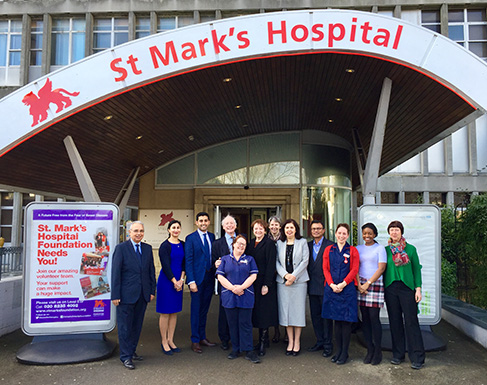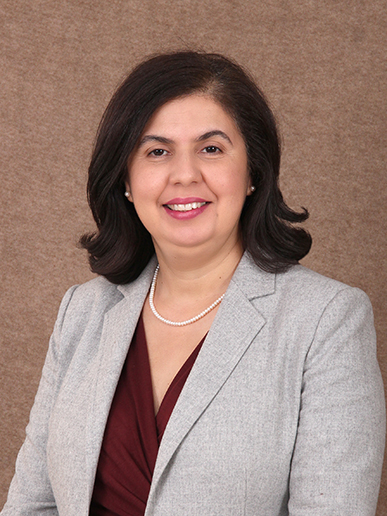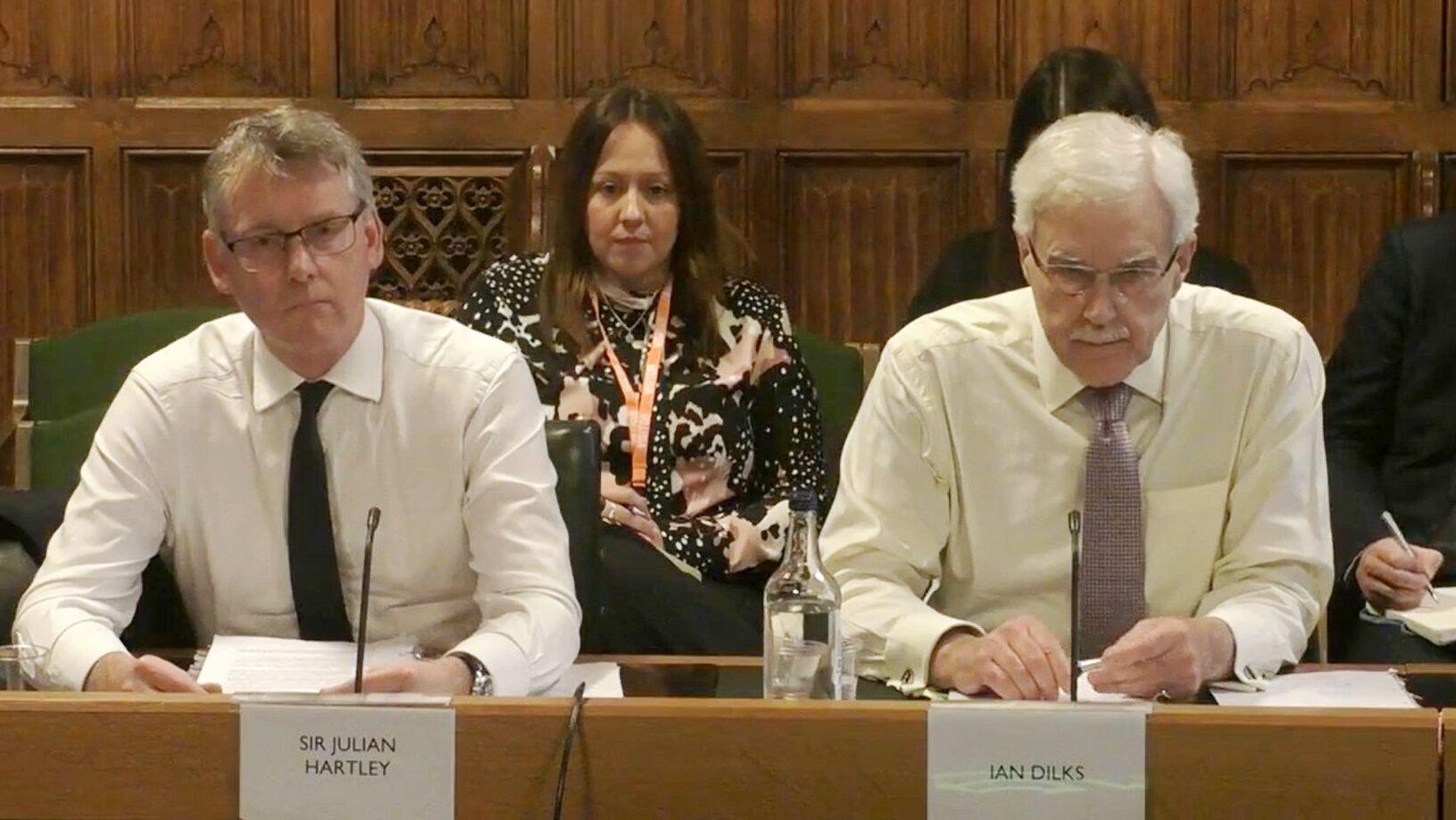Unblocking the outpatients system at St Mark’s
How the struggling gastroenterology department at St Mark’s Hospital worked with patients and quality improvement managers to deliver dramatic results.

The challenges for healthcare organisations in managing inflammatory bowel disease (IBD) have long been recognised. IBD encompasses ulcerative colitis and Crohn’s disease, both chronic diseases of the gastrointestinal tract without identified causes.
“Compared with other chronic conditions, like diabetes and hypertension, it happens at a younger age more often than not,” explains consultant gastroenterologist Naila Arebi. “It doesn’t really kill people, so mortality is low, which means this cohort have to live a long time with the disease.”
Many IBD patients have vague, non-specific symptoms that pose challenges for GPs. “It comes in acute attacks and then goes quiet, so there are relapses and remissions,” says Arebi. “Sometimes people have very mild disease and don’t really need specialist input, but they do still need to be monitored, as they could develop complications either from drug treatments or from the condition.”
Mismatch between needs and access
St Mark’s Hospital, part of London North West University Healthcare NHS Trust, was facing an increasing need to monitor outpatients with IBD. In 2016, a service evaluation showed there was a clear “mismatch” between need and access. Up to two-thirds of patients were in remission, but those with acute symptoms were having trouble accessing help when they needed it. There were long waits in clinics, and seemingly-well patients were in effect “displacing” people with active disease or those being referred for suspected cancer.

“We came up with the idea of trying to stratify the patients who are ‘well’, or have a low risk of developing complications, and offering them out-of-hospital follow-up with a telephone clinic,” says Arebi.
Improvement science manager Susan Barber from the North West London Collaboration for Leadership in Applied Health Research and Care (CLAHRC) worked on the project from the beginning alongside the clinical team from St Mark’s. She describes how they discussed with patients and other stakeholders what needed to be changed, and how this could be implemented step-by-step, with “everybody on the same page”.
Barber acted as mentor and coach for staff who were unfamiliar with quality improvement (QI) methodology. “You make plans, you enact them, and in those plans you predict what you think what you’re going to achieve and [measure] whether you do. Then, if you don’t, you can think again and make another cycle,” she explains.
A key early job was to decide on criteria for identifying “low-risk” patients in remission who could be offered an alternative to an outpatients appointment with a consultant. “We tested and tried several elements,” says Barber. “The first thing was the stratification of the database itself. We then had to figure out ways and means of offering patients the option, getting their response to it and going the next step and maybe booking them in for the next appointment in a different way – the telephone clinic.”
The team also planned to set up new “rapid assessment” clinics to deliver urgent specialist access within one week for patients with acute symptoms, hopefully reducing attendances at the emergency department.
Clinical “resistance”
At the outset there was some “clinician resistance”, says Arebi, to the idea of out-of-hospital or telephone clinics for monitoring low-risk patients. “A few people were anxious and felt it was the health service trying to save money,” she explains. “Consultants were a bit apprehensive that they wouldn’t have enough work and might be made redundant… We realised that raising awareness about the project and quality improvement methodology would be a challenge.”
The team organised multidisciplinary meetings to discuss ideas, problems and possible solutions, and held regular sessions for staff to learn about QI methods and discuss the results. They also worked with the trust’s IT department to identify the data they needed to understand the wider impact of their decisions.
“Consultants could see the benefits, they could see how many patients didn’t have to come to clinic and they could focus on the difficult cases – which they’ve been trained to do,” Arebi adds.
Good for patients
Patient involvement throughout was key. Before the project, outpatients were asked to complete service questionnaires independently, and showed little interest in telephone clinics. But once clinicians began talking patients through the process, and were booking follow-up appointments on the spot, there was a “dramatic” improvement, says Barber: the proportion of patients choosing telephone clinics more than doubled from 6% to more than 15% in the first 16 weeks.
Susan Bailey-Fee, who suffers from IBD, was one of two patients on the project team. “The main advantage is, if you’re long-term stable, it isn’t really necessary to go into hospital and see a consultant – you’re losing a day off work and cost of travel just to be told ‘you’re fine, come back in six months’,” she explains. “All that could be done over the phone because you’ve already had your blood tests done. It frees up time for the patient as well as the hospital. So it’s a good idea.”
The new system has reduced waiting times for new gastroenterology patients, with average referral times down from 12.5 weeks in January 2017 to 7.6 weeks by October. 86 patients with acute symptoms used the new rapid access clinics between June and December 2017, with no admissions to hospital; a survey found that that 55% of these patients had reduced their emergency department attendance as a result, while 90% were extremely satisfied with the standard of care they received.
Barber says the team are already involved in the plans to expand the number of hospital doctors working in scheme beyond the current three consultants and three registrars. And, with funding from Brent and Harrow CCG, they plan to recruit an IBD nurse to work through GP practices. Eligible patients in remission will have the option of being monitored by the nurse through regular telephone clinic appointments or other community services.
Managers were crucial
Consultant Naila Arebi says the “transformed” IBD outpatient service is now much more responsive to patients’ needs. “We couldn’t have done it without the managers at CLAHRC,” she adds. “They have the time to think about what we’re doing and reflect a bit more – while we’re running the clinical service.”
She believes the model could be replicated for other long-term conditions. “I think overall it’s been a really positive experience – it’s been challenging but an eye-opener on getting a different perspective on a problem,” she says. “I’m confident we’ve created a recipe for other people to adopt this approach.”
“It’s still relatively early days,” says CLAHRC’s Susan Barber, who praises the St Mark’s team for making good progress up a steep learning curve. “If they keep that up, they believe they will make this ‘business as usual’ within the next year,” she adds.
Patient representative Susan Bailey-Fee describes the scheme as “a massive change for the stable patient” and argues that involving patients from the start was crucial to its success.
“As a patient you don’t realise all the intricacies of the NHS, and how long it takes to achi something that you think is quite simple – that small piece of the puzzle,” she says. “I think if more patients could be encouraged to get involved, a lot more projects and issues could be solved really quickly with more of a patient voice.”
The St Marks IBD project won the 2018 Brian Turley award for working with patients, service users, carers, families and communities.
Related News
-

Regulating the managers: more questions than answers
The Labour government’s plans for regulating NHS managers are still shrouded in mystery, and the three options on the table each have their pros and cons. Rhys McKenzie weighs up the choices and gauges the views of MiP members on the best way forward.
-

The inspector falls: why the CQC needs a fresh start
After years of chaos, the Care Quality Commission urgently needs to rebuild trust and credibility with the public and the services it regulates. What needs to change and what are the priorities for new boss Sir Julian Hartley? Alison Moore reports.
-

Voice, value and vision: what analysts need from the NHS
Data analysts play a vital role in an NHS which is increasingly data-driven and focused on public health trends. But the NHS faces fierce competition for skilled analysts and many feel the health service fails to value them or fully use their talents. Alison Moore reports.